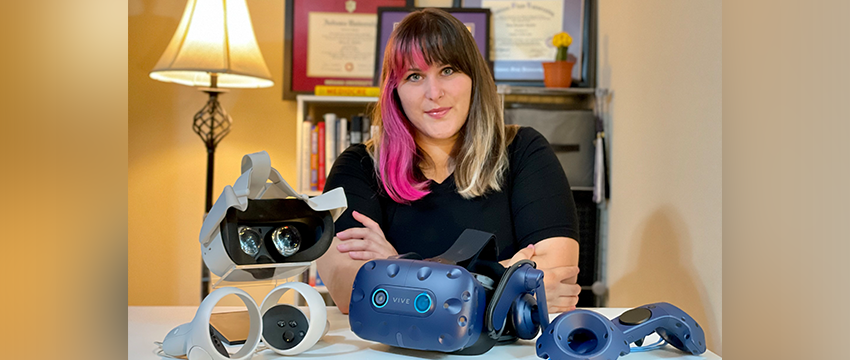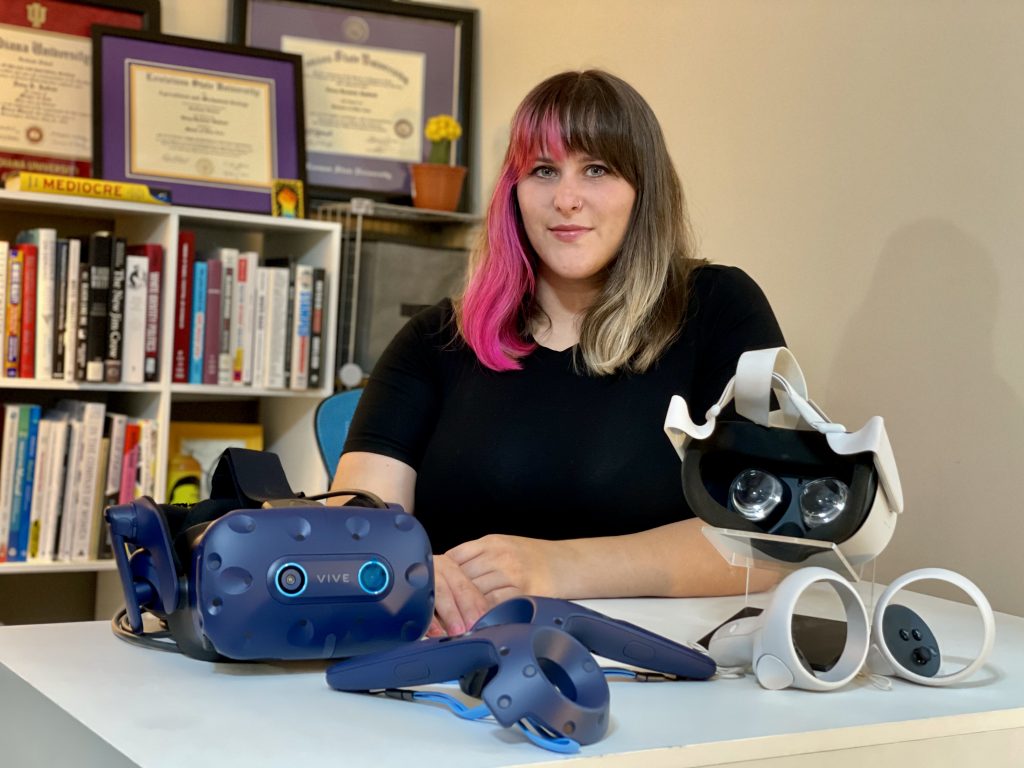Haley Hatfield wins Top Paper award for research on racial bias in virtual reality

Haley Hatfield wins Top Paper award for research on racial bias in virtual reality
Haley Hatfield, a PhD student from El Dorado, Kansas, recently was awarded Top Paper honors from The Human Communication and Technology Division (HCTD) of the National Communication Association (NCA).
“I was a bit in shock, to be honest,” Hatfield said. “I care so much about this project and put so much of myself into it.”
Hatfield, along with her co-authors, submitted a paper titled: “Confronting Whiteness through Virtual Humans: A review of 20 years of research in prejudice and racial bias using virtual environments.”
The paper analyzes 53 studies that use virtual humans in the realm of video games or virtual reality and highlights areas where previous research did not display a historical understanding of racial inequality.
“When we interact with technology, it is easy to see it as being neutral or incapable of having biases,” Hatfield said of her research team’s findings. “It can be easy to forget that technology is created by biased humans and subsequently used by biased humans. And in many cases, these biases can become replicated within virtual spaces.”

Hatfield’s research is conducted in the Games and Virtual Environments Lab (GAVEL) with Grace Ahn and in the Brain, Body and Media Lab (BBAM) with Glenna Read. Hatfield’s focus is understanding the relationship between virtual reality and attitudes attributed to systemic racism and white privilege.
“I was so impressed with Haley’s tenacity and motivation,” said Ahn. “She always puts in a great deal of thought into her writing and every new draft she showed me was dramatically better than the earlier one.”
The paper emphasizes that virtual reality gives users a unique chance to feel experiences from others’ perspective. Hatfield says that opportunity makes it all the more important to be responsible and informed when portraying race in virtual environments.
“Moving forward, it will take a lot more listening from those who have been in the majority for so long and for those same people to continuously work to help uncover and responsibly dismantle systems of oppression within research and their personal lives,” said Hatfield.
Much of the research for this project occurred in the midst of the pandemic, when team collaboration was more difficult and feedback could be constrained due to distance. Ahn says those challenges made the work all the more impressive.
“She (Hatfield) is asking critical questions that force us to re-examine how we view and discuss technological advancements in communication, and I was glad that the reviewers agreed with us in seeing the significance of those discussions,” said Ahn. “We hope that this paper serves as an impetus to begin these difficult but important discussions. VR is a new and cool technology, but technological innovations alone are unable to resolve the problem of structural inequity and racism.”
This paper was Hatfield’s first submission to NCA. She will present the findings in person at NCA’s annual convention in Seattle in November.
Hatfield is in the AdPR track of the PhD program and aspires to become a tenured research professor where she can lead her own VR lab.
https://twitter.com/HaleyRHatfield/status/1409679782329995268?s=20